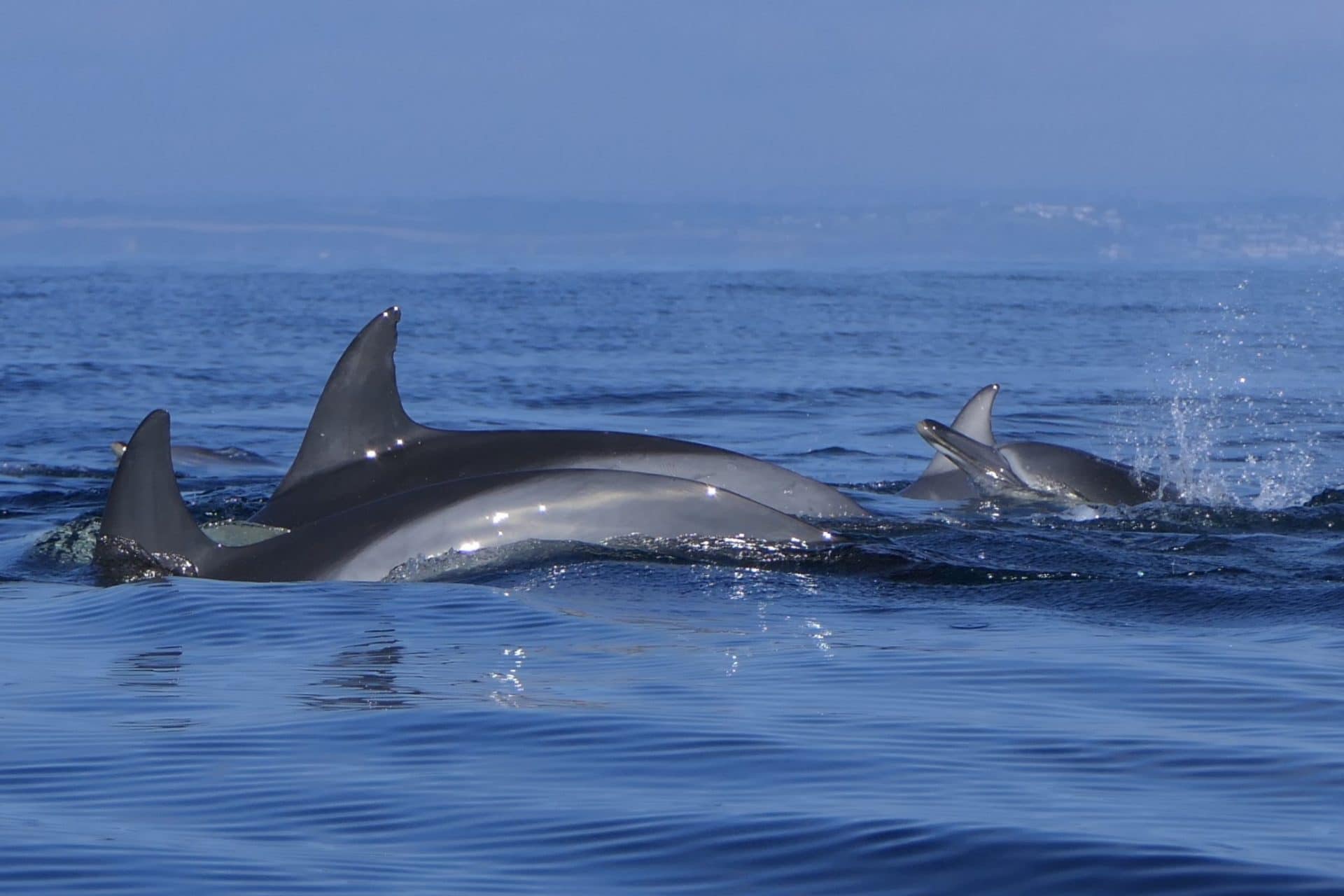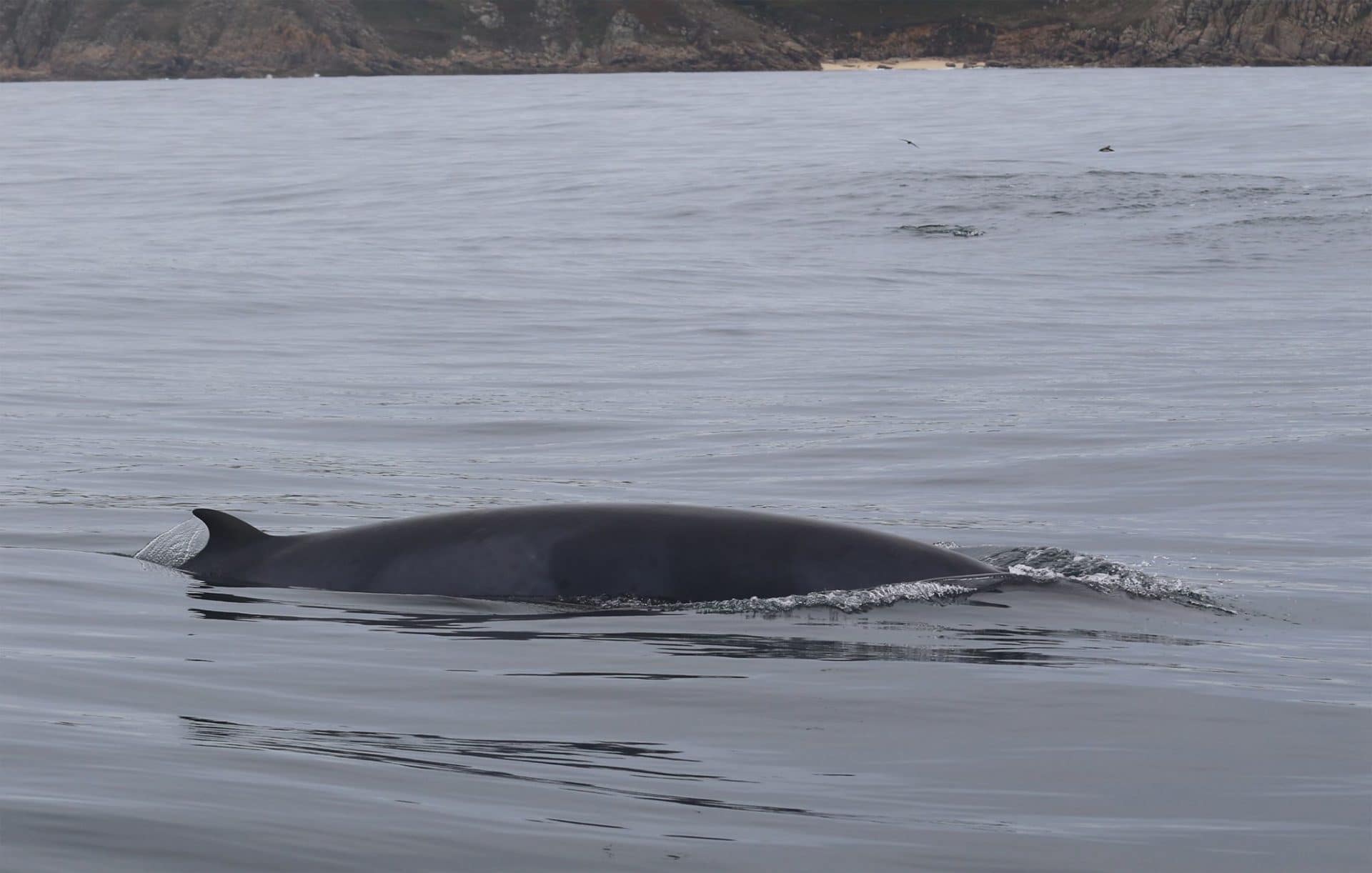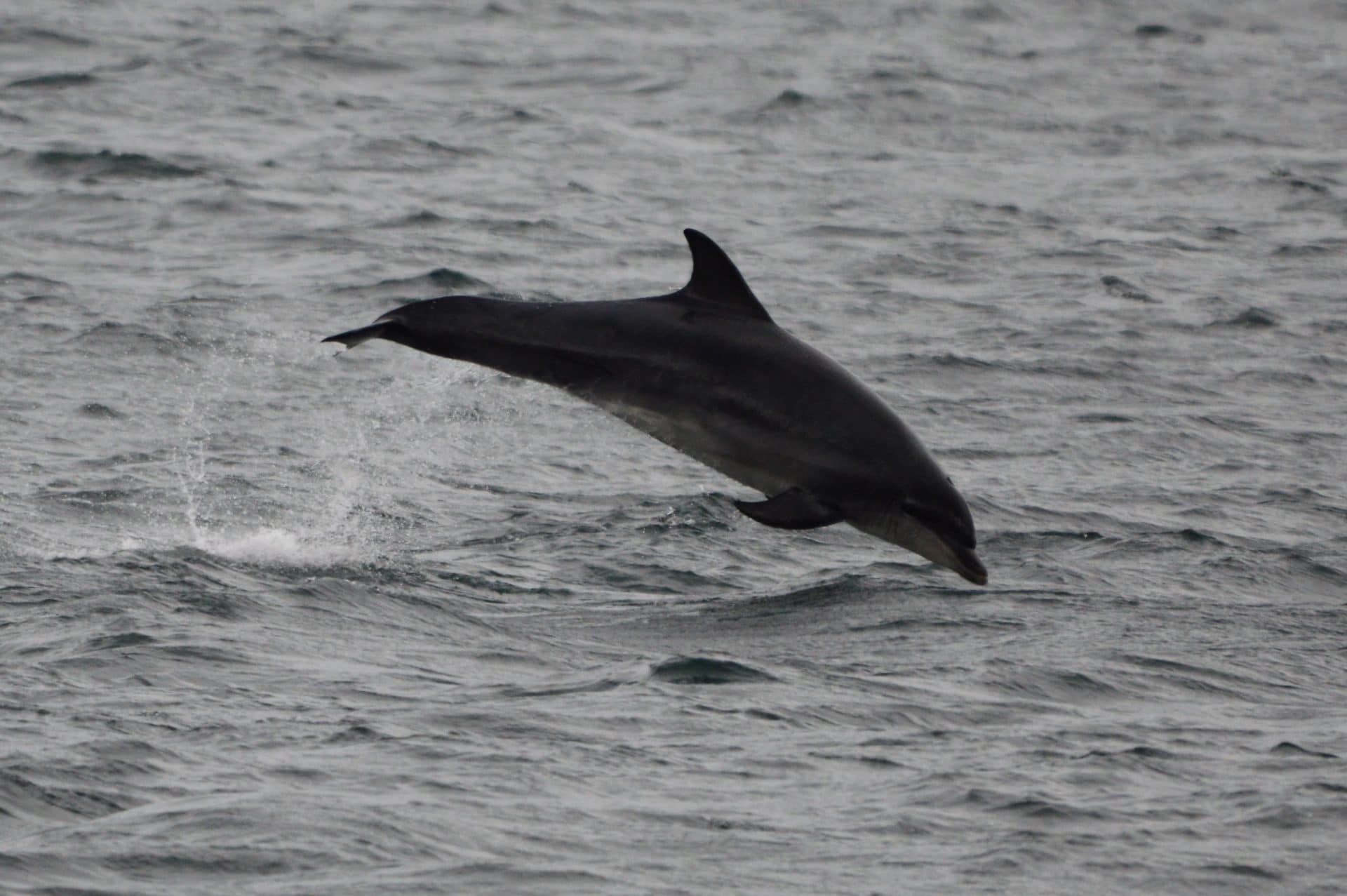Marine Life & Conservation
National Whale and Dolphin Watch 2018: the results are in!

2018 marked the 17th year of Sea Watch Foundation’s National Whale and Dolphin Watch event, a citizen science project which has gained tremendous popularity over the years.
Last year’s event, which took place 28th July – 5th August, revealed striking biodiversity with an impressive 13 species of cetaceans seen around the British Isles in just those few days, a number which was only been recorded once before. The total number of sightings collected was larger than last year, and the highest reported so far. The 2018 event totalled 1,328 hours of watches conducted, over 100 hours more than in 2016. Over 43% of the total amount of hours spent collecting effort-related data came from land-based locations.

Students from the University of Hull conducting a land watch from Filey Brigg. Photo credit: University of Hull
“I am very proud of what we achieved with the help of wildlife enthusiasts and conservation and recording organisations around the country, who have contributed data collected from boats (inshore and offshore) and from land stations in different parts of the UK”, says Dr Chiara Giulia Bertulli, organiser of this year’s national event for the UK national research charity, Sea Watch Foundation.
South Grampian, Outer Hebrides, South Devon, Northeast and Northwest Scotland as well as West Wales are at the top of the list with sighting rates far superior to “2” (indicating an average of two or more cetaceans seen per hour of watching). Based on this year’s results, the UK’s national average sightings rate has increased compared to last year with over one cetacean seen for each hour of watching.
“The most memorable sightings from this past year’s Watch week”, adds Chiara, “include humpback whales in Yorkshire and Aberdeenshire, striped dolphins live stranding in South Wales, Sowerby’s beaked whale in East Lothian, fin whales in Northeast Scotland and Outer Hebrides, and large pods of short-beaked common dolphins off Puffin Island and Menai Bridge in North Wales.”

Common minke whale photographed off Penzance, Cornwall, on August 3rd. Photo credit: Hannah Jones / Marine Discovery Penzance
During the 2018 NWDW event, species such as harbour porpoise, bottlenose dolphin, and minke whale continued to have a widespread coastal distribution and, as the results show, most of their sightings were actually recorded in coastal waters from land. Short-beaked common dolphins, an ocean species known for their offshore distribution, were mainly sighted from motorised vessels. Striped dolphins, which were only recorded once were also sighted from a vessel. Atlantic white-sided dolphins were sighted six times, and, unusually, 83% of those times it was from land.
The ability to detect cetaceans and collect sightings information is strongly affected by several weather parameters such as sea state, glare, swell height and visibility. When the weather deteriorates due to strong winds and/or heavy rain, watches may even be cancelled altogether as conditions are no longer suitable to collect presence and absence data. Taking this into account, every year, NWDW is organized over a period of nine days to increase the chances of getting favourable weather conditions to conduct land and boat watches at different sites around the UK. Last year, weather was changeable, with temperatures generally well above average.

Bottlenose dolphins photographed off Berwick-upon-Tweed, Northumberland, on July 31st. Photo credit: Amber Thomas
Of the species recorded during the 2018 NWDW event, the harbour porpoise was the most commonly seen in most parts of the UK, followed by bottlenose dolphin, short-beaked common dolphin and common minke whale.
With regards to the distribution of cetacean sightings around the UK, Scotland recorded the highest number of sightings, with the most sightings coming from South-West Scotland and Inner Hebrides, Outer Hebrides and North-West Scotland. England was second with the neighbouring regions of Cornwall, South Devon providing the most sightings followed by Yorkshire. Wales placed third with West Wales collecting most of sightings. Around the Channel Islands, observers reported 26 sightings, and there were nine reports from around the Isle of Man. Six sightings were also recorded in Northern Ireland.
Sea Watch Foundation are seeking volunteers to come forward to take part in the National Whale and Dolphin Watch 2019 this summer, which takes place 27th July – 4th August. Surveys can take place from your favourite or closest bit of coastline and boat-users are urged to get in touch too. No experience is necessary as the team at Sea Watch will offer you training and advice on how to take part.
 Download a copy of the full 2018 National Whale and Dolphin Watch report HERE.
Download a copy of the full 2018 National Whale and Dolphin Watch report HERE.
Find out more about the 2019 NWDW event HERE.
Anyone interested in spending more time looking for whales, dolphins and porpoises around the UK should visit the Sightings Network webpage at www.seawatchfoundation.org.uk/regional-groups or submit their sightings online at www.seawatchfoundation.org.uk/sightingsform.
Marine Life & Conservation
Double Bubble for Basking Sharks

 The Shark Trust is excited to announce that, for two more days only, all donations, large or small, will be doubled in the Big Give Green Match Fund!
The Shark Trust is excited to announce that, for two more days only, all donations, large or small, will be doubled in the Big Give Green Match Fund!
Donate to Basking in Nature: Sighting Giants
The Shark Trust is hoping to raise £10k which will be doubled to £20k. This will go towards Basking in Nature: Sighting Giants. And they need YOUR help to reach they’re goal.
The Shark Trust’s citizen science project is to monitor and assess basking sharks through sightings; encouraging data collection, community engagement, and promoting nature accessibility. This initiative aims to enhance health and wellbeing by fostering a deeper connection with British Sharks.
Campaign Aims
- Increase citizen science reporting of Basking Sharks and other shark sightings to help inform shark and ray conservation.
- Provide educational talks about the diverse range of sharks and rays in British waters and accessible identification guides!
- Create engaging and fun information panels on how to ID the amazing sharks and rays we have on our doorstep! These can be used on coastal paths around the Southwest. With activities and information on how you can make a difference for sharks and rays!
- Promote mental wellbeing through increasing time in nature and discovering the wonders beneath the waves!
Donate, and double your impact. Click Here
Marine Life & Conservation
Leading UK-based shark conservation charity, the Shark Trust, is delighted to announce tour operator Diverse Travel as a Corporate Patron

 Corporate Patrons provide a valuable boost to the work of The Shark Trust. The Trust team works globally to safeguard the future of sharks, and their close cousins, the skates and rays, engaging with a global network of scientists, policymakers, conservation professionals, businesses and supporters to further shark conservation.
Corporate Patrons provide a valuable boost to the work of The Shark Trust. The Trust team works globally to safeguard the future of sharks, and their close cousins, the skates and rays, engaging with a global network of scientists, policymakers, conservation professionals, businesses and supporters to further shark conservation.
Specialist tour operator Diverse Travel has operated since 2014 and is committed to offering its guests high quality, sustainable scuba diving holidays worldwide. Working together with the Shark Trust will enable both organisations to widen engagement and encourage divers and snorkellers to actively get involved in shark conservation.
“Sharks are truly at the heart of every diver and at Diverse Travel, we absolutely share that passion. There is nothing like seeing a shark in the wild – it’s a moment that stays with you forever!” says Holly Bredin, Sales & Marketing Manager, Diverse Travel.
“We’re delighted to celebrate our 10th year of business by becoming a Corporate Patron of the Shark Trust. This is an exciting partnership for Diverse and our guests. We will be donating on behalf of every person who books a holiday with us to contribute towards their vital shark conservation initiatives around the world. We will also be working together with the Trust to inspire divers, snorkellers and other travellers to take an active role – at home and abroad – in citizen science projects and other activities.”
Paul Cox, CEO of The Shark Trust, said:
“It’s an exciting partnership and we’re thrilled to be working with Diverse Travel to enable more divers and travellers to get involved with sharks and shark conservation. Sharks face considerable conservation challenges but, through collaboration and collective action, we can secure a brighter future for sharks and their ocean home. This new partnership takes us one more valuable step towards that goal.”
For more information about the Shark Trust visit their website here.
For more about Diverse Travel click here.
-

 News3 months ago
News3 months agoHone your underwater photography skills with Alphamarine Photography at Red Sea Diving Safari in March
-

 News3 months ago
News3 months agoCapturing Critters in Lembeh Underwater Photography Workshop 2024: Event Roundup
-

 Marine Life & Conservation Blogs2 months ago
Marine Life & Conservation Blogs2 months agoCreature Feature: Swell Sharks
-

 Blogs2 months ago
Blogs2 months agoMurex Resorts: Passport to Paradise!
-

 Blogs2 months ago
Blogs2 months agoDiver Discovering Whale Skeletons Beneath Ice Judged World’s Best Underwater Photograph
-

 Gear Reviews3 months ago
Gear Reviews3 months agoGear Review: Oceanic+ Dive Housing for iPhone
-

 Marine Life & Conservation2 months ago
Marine Life & Conservation2 months agoSave the Manatee Club launches brand new webcams at Silver Springs State Park, Florida
-

 News3 months ago
News3 months agoWorld’s Best Underwater Photographers Unveil Breathtaking Images at World Shootout 2023






